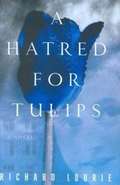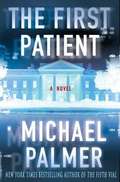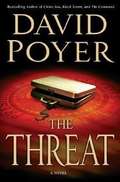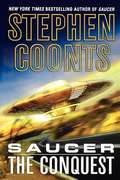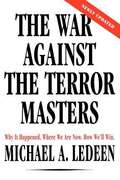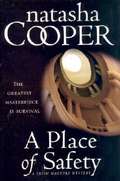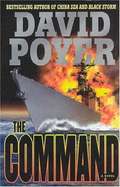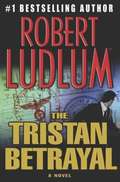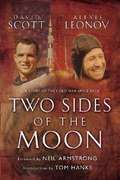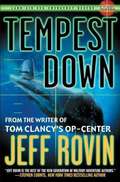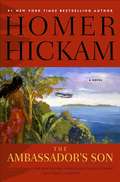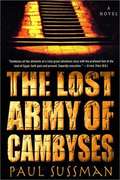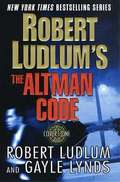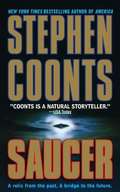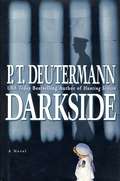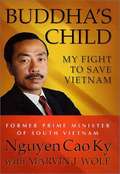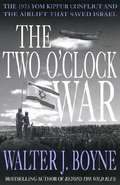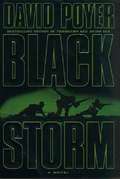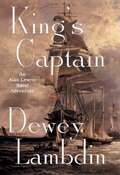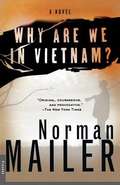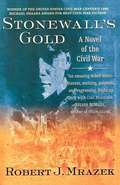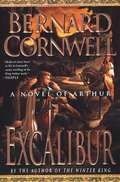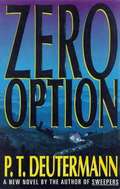- Table View
- List View
A Hatred For Tulips
by Richard LourieJoop, is the narrator of this brief and bitter tale, whose secret is like no other. He has kept that secret for more than sixty years.
The First Patient
by Michael PalmerFrom the blockbuster New York Times bestselling author comes a high-concept, high-octane thriller at the crossroads of presidential politics and cutting-edge medicine. Gabe Singleton and Andrew Stoddard were roommates at the Naval Academy in Annapolis years ago. Today, Gabe is a country doctor and his friend Andrew has gone from war hero to governor to President of the United States. One day, while the United States is embroiled in a bitter presidential election campaign, Marine One lands on Gabe's Wyoming ranch, and President Stoddard delivers a disturbing revelation and a startling request. His personal physician has suddenly and mysteriously disappeared, and he desperately needs Gabe to take the man's place. Despite serious misgivings, Gabe agrees to come to Washington. It is not until he is ensconced in the White House medical office that Gabe realizes there is strong evidence that the President is going insane. Facing a crisis of conscience-as President Stoddard's physician, he has the power to invoke the Twenty-fifth Amendment to transfer presidential power to the Vice President- Gabe uncovers increasing evidence that his friend's condition may not be due to natural causes. Who? Why? And how? The President's life is at stake. A small-town doctor suddenly finds himself in the most powerful position on earth, and the safety of the world is in jeopardy. Gabe Singleton must find the answers, and the clock is ticking. With Michael Palmer's trademark medical details, and steeped in meticulous political insider knowledge, The First Patient is an unforgettable story of suspense.
Color of the Sea
by John HamamuraGrowing up in a time between wars, Sam Hamada finds that the culture of his native Japan is never far from his heart. Sam is rapidly learning the code of the samurai in the late 1930s on the lush Hawaiian Islands, where he is slowly coming into his own as a son and a man. But after Sam strikes out for California, where he meets Keiko, the beautiful young woman destined to be the love of his life, he faces crushing disappointment---Keiko’s parents take her back to Japan, forcing Keiko to endure their attempts to arrange her marriage. It is a trial complicated by how the Japanese perceive her---as too Americanized to be a proper Japanese wife and mother---and its pain is compounded by the Japanese attack on Pearl Harbor, which ignites the war that instantly taints Sam, Keiko, and their friends and family as enemies of the state. Sam himself is most caught between cultures when, impressed by his knowledge of Japanese, the U.S. Army drafts and then promotes Sam, sending him on a secret mission into a wartime world of madness where he faces the very real risk of encountering his own brother in combat. From the tragedies of the camps through the bombing of Hiroshima, where Sam’s mother and siblings live, Sam’s very identity both puts his life at risk and provides the only reserve from which he can pull to survive. In this beautifully written historical epic about a boy in search of manhood, a girl in search of truth, and two peoples divided by war, Sam must draw upon his training, his past, and everything he has learned if he’s ever to span his two cultures and see Keiko, or his family, again.
The Threat (A Dan Lenson Novel #9)
by David PoyerFrom the bestselling author of The Circle, The Med, The Gulf, The Passage, Tomahawk, China Sea, Black Storm, and The Command ... a heart-stopping thriller of danger and conspiracy at the highest levels of command and government. Medal of Honor winner Commander Dan Lenson wonders who proposed that he be assigned to the White House military staff. It's a dubious honor-- serving a president the Joint Chiefs hate more than any other in modern history. Lenson reports to the West Wing to direct a multi-service team working to interdict the flow of drugs from Latin America. Never one to just warm a chair, he sets out to help destroy the Cartel-- and uncovers a troubling thread of clues that link cunning and ruthless drug lord Don Juan Nunez to an assault on a nuclear power plant in Mexico, an obscure Islamic relief agency in Los Angeles, and an air-cargo company's imminent flight plan across the United States. Lenson has to battle civilian aides and his own distaste for politics to derail a terrorist strike over the Mexican border. His punishment for breaking the rules is to be sent to the East Wing... as the military aide carrying the nuclear "football," the locked briefcase with the secret codes for a nuclear strike, for a president he suspects is having an affair with his wife. And something else is going on beneath the day-to-day turmoil and backstabbing. As his marriage deteriorates and his frustration with Washington builds, Lenson becomes an unwitting accomplice in a dangerous and subversive conspiracy. The U.S. military is responsible for its Commander in Chief's transportation and security. If someone felt strongly enough about it... it would be easy for the president to die.
Saucer #2: The Conquest
by Stephen Coonts"In Saucer, after discovering the secrets of a 140,000-year-old spacecraft and delivering it to safety in the Air and Space Museum of the Smithsonian right alongside Lindbergh's Spirit of St. Louis, Rip Cantrell and beautiful test pilot Charley Pine think their days of high-flying extraterrestrial adventure are over. However, that will change in the sequel, Saucer: The Conquest, because someone is using top-secret information about saucer technology, information that comes from the mysterious region in Nevada known as Area 51." Meanwhile, Charley takes up flying space planes to the moon for the French lunar base project. There she discovers a world-threatening antigravity beam. The French kidnap Rip's uncle, Egg, and force him to fly a saucer hidden in Area 51 to the moon. Rip and Charley must steal the first saucer from its new home at the museum and hit the not-so-friendly skies again in order to save Uncle Egg and the world.
The War Against the Terror Masters
by Michael A. LedeenThe War Against the Terror Masters is a must-read guide to the terrorist crisis. Michael A. Ledeen explains in startling detail how and why the United States was so unprepared for the September 11th catastrophe; the nature of the terror network we are fighting--including the state sponsors of that network; the role of radical Islam; and the enemy collaboration of some of our traditional Middle Eastern "allies";--and, most convincingly, what we must do to win the war. The War Against the Terror Masters examines the two sides of the war: the rise of the international terror network, and the past and current efforts of our intelligence services to destroy the terror masters in the U.S. and overseas. Ledeen's new book also visits every country in the Near East and describes the terrorist cancers in each. Among many revelations that will attract wide attention: *How the terror network survived the loss of its main sponsor, the Soviet Union. *How the FBI learned from a KGB defector--twenty years before Osama's bin Laden's murderous assault--of the existance of Arab terrorist sleeper networks inside the United States. *How moralistic guidelines straight-jacketed the FBI from even collecting a file of newspaper clippings on known terror groups operating in America. *How the internal culture of the CIA, and severe limitations on its ability to operate, blinded us to the growth of terror networks. And much more.
A Place Of Safety
by Natasha CooperBarrister Trish Maguire needs all the time she can find to help her young half-brother adjust to life after the violent death of his mother. Sir Henry Buxford, an influential acquaintance, has other ideas. He asks Trish to investigate one of his private charities, a magnificent art collection built up before 1914 and lost for most of the twentieth century. Taking a crash course in the murkier aspects of the art world, Trish is determined to unlock the secrets she is sure are hidden somewhere in the collection. Her research takes her not only into the heart of an engrossing love story, but also into the agonizing reality of the trenches of the First World War. She soon discovers a web of deceit that has spanned the decades since, catching all kinds of people in its filaments. Now, the innocent, the violent, and the victims all have to free themselves. And someone dies. With her trademark dexterity and hard-hitting suspense, Natasha Cooper brings us the unstoppable Trish Maguire in her most challenging and enthralling case to date.
The Command (A Dan Lenson Novel #8)
by David PoyerAfter receiving the Congressional Medal of Honor for action in Iraq, Commander Daniel V. Lenson is given new orders: "Take over as skipper of USS Thomas W. Horn." His mission: Prepare the Tomahawk-equipped strike destroyer and her crew for the Red Sea, where she'll join an international task force searching for weapons of mass destruction. But this will be no routine deployment. Horn will be the first U.S. Navy warship ever to deploy with an integrated male and female crew-a controversial and politically explosive experiment that will raise questions about morale, behavior, training, sexual attraction, and ultimately, performance under fire. Facing sandstorms, smugglers, and ambushes, Horn's increasingly polarized crew will conduct demanding, diplomatically sensitive search-and-seizure operations against foreign vessels attempting to smuggle arms to Iraq. But the real nightmare is brewing in Bahrain. There, the most dangerous bomb expert in Al-Qaeda has targeted Horn for attack as the first step in a plan to redraw the map of the whole Middle East. With gripping action scenes and an explosive climax, The Command continues Dan Lenson's star-crossed career in a series that explores both global and deeply personal implications of honor, duty, power, and war.
The Tristan Betrayal
by Robert LudlumIn the fall of 1940, the Nazis are at the height of their power and Stephen Metcalfe is living the high life in occupied Paris. He is also an asset in the U.S.'s secret intelligence forces.
Two Sides of the Moon: Our Story of the Cold War Space Race
by David Scott Neil Armstrong Christine Toomey Tom Hanks Alexei LeonovSpace was one of the most fiercely fought battlegrounds of the Cold War, the Moon its ultimate beachhead. In this dual autobiography,Apollo 15 commander David Scott and cosmonaut Alexei Leonov, the first man to ever walk in space, recount their exceptional lives and careers spent on the cutting edge of science and space exploration—and their participation in the greatest technological race ever—to land a man on the Moon. With each mission fraught with perilous tasks, and each space program touched by tragedy, these parallel tales of adventure and heroism read like a modern-day thriller. Cutting fast between their differing recollections, this book reveals, in a very personal way, the drama of one of the most ambitious contests ever embarked on by man, set against the conflict that once held the world in suspense: the clash between Communism and Western democracy. Through the men's memoirs, their courage, passion for exploration, and determination to push themselves to the limit, emerge not only through their triumphs but also through their perseverance in times of extraordinary difficulty and danger. "Two Sides of the Moon is unique among space histories. If you are looking for a balanced, interesting, and personal account of the American and Soviet space programs during the 1960s and 1970s this is it. " ---Astronomy Magazine
Tempest Down
by Jeff Rovin"Tempest Down is a story that follows the finest naval traditions. Two submarines are caught in a tragic accident at the bottom of the world. One is an American experimental test bed for an advanced propulsion system; the other a Chinese warship sent to learn its secrets. "Two crews battle the relentless sea and failing technology. They must choose between common humanity and duty-a choice to work together or die separately. A special U.S. military team code-named L.A.S.E.R. (Land Air Sea Emergency Rescue) attempts a daring rescue to save both crews.
The Ambassador's Son
by Homer HickamIn 1943, the Americans and Japanese are fighting a deadly war. Now a blow has fallen on American morale. Lieutenant Armistead, cousin of the president is missing, and may have gone over to the enemy.
The Lost Army of Cambyses
by Paul SussmanIn 523 BC, the Persian emperor Cambyses dispatched an army across Egypt's western desert to destroy the oracle of Amun at Siwa. Legend has it that somewhere in the middle of the Great Sand Sea, his army was overwhelmed by a sandstorm and destroyed. Fifty thousand men were lost.
The Altman Code (Covert-One #4)
by Robert Ludlum Gayle LyndsIN THE MIDDLE OF THE NIGHT, ON THE DARK WATERSIDE DOCKS OF SHANGHAI, a photographer is recording cargo being secretly loaded when he's brutally killed and his camera destroyed. Shortly thereafter Covert-One director Fred Klein brings word to the president that there's a Chinese cargo ship rumored to be carrying tons of chemicals to be used by a rogue nation to create new biological weapons. The president cannot let the ship land and risk the consequences of a new stockpile of deadly chemical weapons. Klein is ordered to get the president solid proof of what the Chinese ship is ferrying. Covert-One agent Jon Smith is sent to rendezvous in Taiwan with another agent, who lias acquired the ship's true manifest. But before Smith can get the document, the two agents are ambushed, the second agent is murdered, the proof is destroyed, and Smith escapes with only his life, scant clues to the mystery behind the cargo ship, and a verbal message - the president's biological father is still alive, held prisoner by the Chinese for fifty years. As the Chinese cargo ship draws ever closer to its end port, Smith must race against the clock to uncover the truth about the ship and its cargo, a truth that probes the deepest secrets of the Chinese ruling party, the faction in Washington working to undermine the elected government, and the international cabal who is thrusting the world to the very brink of war.
Saucer #1: Saucer
by Stephen CoontsWhile working in the Sahara desert far from any settlements, a group of people discover a flying saucer that is 140,000 years old. Soon the Air Force of the US has sent a crack team; and Australian billionaire is involved in trying to steal the secrets; and those who find it end up flying it on a trip around the world. How will it all end? Is this the beginning of a new era in our history or just more of the same?
Darkside: A Novel
by P. T. DeutermannAt the US Naval Academy, the midshipmen refer to the Administration as the Darkside, a nickname befitting the secrecy and manipulation that occur behind closed doors. So when a plebe, a first year student, falls to his death from a campus building, the Academy tenses as the Darkside begins to creep out of the shadows to cut off any possible scandal. DARK SECRET Retired naval aviator Ev Markham is now a professor at the Academy. When a provocative clue connects the dead midshipman to senior midshipman, Julie Markham, Ev's daughter, he knows how quickly she could become a scapegoat the Darkside craves. But a second body convinces Academy security officer Jim Hall that a killer is on the loose. As both men struggle to uncover the truth, a psychopath more sinister than they can imagine lies in wait, protecting the ultimate - and most deadly - secret of all...
Buddha's Child: My Fight to Save Vietnam
by Nguyen Cao Ky Marvin J. WolfThe former prime minister of South Vietnam recalls the pivotal events, major personalities, and previously unknown aspects of Vietnam's two-decade debacle.
The Two O'Clock War
by Walter BoyneA history of the Yom Kippur conflict and the airlift that saved Israel
Black Storm (A Dan Lenson Novel #7)
by David PoyerFrom the bestselling author of Tomahawk and China Sea, a heart-stopping thriller of Marine Corps special operations-the men whose bravery and sacrifice brought victory in the desert. Six days before America invades Iraq, Saddam Hussein issues an ultimatum: if coalition forces cross the border, he will turn Israel into "a crematorium." Belatedly realizing how far Saddam's weapons program has progressed, U.S. intelligence agencies suspect he's concealing either a crude nuclear device or missiles loaded with lethal chemical or biologic agents. A quickly assembled marine reconnaissance team gets the assignment for Operation signal Mirror. In the four days left before the ground war begins, Gunnery Sergeant Marcus Gault and his marine-army-navy team must land in Iraq, locate Saddam's ultimate deterrent, and target it for destruction with U.S. cruise missiles. After a terrifying helicopter insertion, the team moves like shadows across a mobilized and blacked-out Iraq-- toward Baghdad, and a rendezvous with a mysterious resistance member called "Shamir." Captured and tortured by Iraqi intelligence en route, Lieutenant Commander Dan Lenson, the targeting officer, must decide whether the secret he carries is worth the life of his teammates-- and his own. But even as the remnants of the team reach their objective, they discover that bombing it would unleash a horror more terrifying than they ever imagined. Now what's left of Urban Assault Team 12-four U.S. Marines, a U.S. Army biological warfare scientist, a British commando, and a Navy Tomahawk officer-- will have to deal with the situation themselves.
King's Captain (Alan Lewrie Naval Adventures Ser. #9)
by Dewey LambdinOFF JESTER’S LEE BOW, DOWN TO THE Sou’east, there were about eight or nine Spanish ships of the line, with accompanying frigates, and they were coming up slowly to merge with another pack. And that pack, good God! Seventeen, at the least, tall-sided, ugly brutes they were; two-decker 68s, 74s, and 80-gunners; some of them three-deckers, and one monstrous Jour-decker flying more admiral's flags than sail-canvas, it seemed. And so stuffed with guns that every time she lit off a broadside, it looked like a mountain blowing up! “Ican make out, sir Lt. Ralph Rhodes attempted to say, as he took off his hat and swiped both forearms of his coat at his hair and brows. A bad sign, that; usually, one nervous hand over his blond locks was sufficient sign of worry. “Aye, Mr. Rhodes?” Commander Alan Lewrie replied, sounding almost calm in comparison. “Beyond, sir." Rhodes pointed toward the Spanish fleet. “It may not be a convoy. About eight or nine more rather large ships over yonder... to the West-Nor’west. Do they all assemble, sir... well!” Two-deckers, d’ye think, sir?" Lewrie frowned, stepping to the starboard side of his quarterdeck, leaning on the bulwarks, and raising his telescope for a look-see “Cah-rrisstt!” was Lewrie’s sudden, un- captainly comment. And a rather loud comment it was too. In his telescope’s ocular, he’d just discovered the fore-end of a ship of the line which wasn’t crossing right-to-left, sailing obediently in the battle-line He was looking at the beak- head and figurehead, the cutwater and frothing bow-wave below an out-thrust bowsprit and jib-boom of a warship—pointing right at him! IN THE BESTSELLING TRADITION OF PATRICK O’Brian’s Aubrey/Maturin series comes Dewey Lambdin’s latest naval adventure featuring Commander Alan Lewrie. This highly entertaining adventure, the ninth in the series, has Lewrie being promoted for his role in the Battle of Cape St. Vincent and awarded command of a new frigate. His future seems assured, but before he’s even had a chance to settle into his new role, mutiny blazes through the fleet, and Lewrie finds himself battling an old enemy for control of his ship. The problems that await him on his own ship, however, make him wish he was back under the Spanish guns, and the sudden reappearance of an old enemy has Lewrie fighting not just for his command, but for his life. Gritty, real, action-packed, and loaded with fun, King’s Captain will take you on a great adventure in the high seas.
Evan Can Wait (Constable Evans Mystery #5)
by Rhys Bowen"With this fifth addition to her critically acclaimed series, Rhys Bowen creates a colorful, page-turning mystery set in two eras against the backdrop of a uniquely appealing small town filled with unforgettable characters. Constable Evan Evans, sole police officer in the charming Welsh village of Llanfair, is assigned to assist an expedition to raise a World War II German bomber plane From a lake. The whole venture is being filmed for a documentary on World War II and Evans tries to assist the film crew by fining them local people with stories to tell. Little does he realize that resurrecting the past can sometimes mean opening old wounds. After some unhappy confrontations, it is not just the villagers who are upset by the filmmakers. Evans's own life is thrown into turmoil as he discovers his girlfriend Bronwen's past relationship with someone From the film crew. Tensions build until one of the filmmakers disappears and is eventually found dead in a nearby slate mine. The case grows more complex as Evans slowly uncovers evidence that the victim had many enemies. In the process Evans also exposes an elaborate- World War II scheme to hide paintings From the National Gallery. Do these paintings have something to do with the filmmakers disappearance? How could he be connected to events that took place over half a century ago? As he investigates, the facts remind Evan who isn't even officially supposed to take part in this investigation, that greed, blackmail, deceit and broken hearts usually play a part in cases of violent death.
Why Are We in Vietnam? A Novel
by Norman MailerWhen "Why Are We in Vietnam?" was published in 1967, almost twenty years after "The Naked and the Dead," the critical response was ecstatic. The novel fully confirmed Mailer's status as one of the most important figures in contemporary American literature. Now, a new edition of this exceptional work serves as further affirmation of its timeless quality. Narrated by Ranald ("D.J.") Jethroe, Texas's most precocious teenager, on the eve of his departure to fight in Vietnam, this story of a hunting trip in Alaska is both brilliantly entertaining and profoundly thoughtful.
Stonewall's Gold: A Novel
by Robert J. MrazekA ripping adventure yarn, a moving coming-of-age tale, and a fascinating portrait of the difficulty of life in the Appalachians at the end of the Civil War, Stonewall's Gold is a compelling novel that is certain to appeal to teacher and student alike.
Excalibur: A Novel of Arthur (The Warlord Chronicles, No. #3)
by Bernard Cornwell[Back of Book] In The Winter King and Enemy of God Bernard Cornwell demonstrated his astonishing ability to make the oft-told legend of King Arthur fresh and new for our time. Now, in this riveting final volume of The Warlord Chronicles, Cornwell tells the unforgettable tale of Arthur's final struggles against the Saxons and his last attempts to triumph over a ruined marriage and ravaged dreams. This is the tale not only of a broken love remade, but also of forces both earthly and unearthly that threaten everything Arthur stands for. Peopled by princesses and bards, by warriors and magicians, Excalibur is a story of love, war, loyalty, and betrayal-the work of a magnificent storyteller at the height of his powers.
Zero Option
by P. T. DeutermannIn the weapons safety office of the super secret Anniston Army Depot, a simple accounting mistake points to the unthinkable: a single chemical weapon has gone missing from a shipment. In the destruction chamber of an Atlanta military surplus sales facility, a single, gleaming cylinder has been found by a supervisor, who recognizes the chance to make more money in one sale than he has in a lifetime of stealing from the government. A government cop is banished to Atlanta out of Washington for fingering a senior official for corruption. A mute girl sees something in the Atlanta airport that terrifies her, and then places her life in mortal danger. Within the cylinder, a mutation is taking place with a timeline of its own. The army, the cop, the supervisor, and the girl are swept into a whirlwind story where the options become narrower as the danger increases, until each of them is left at the point of Zero Option.
